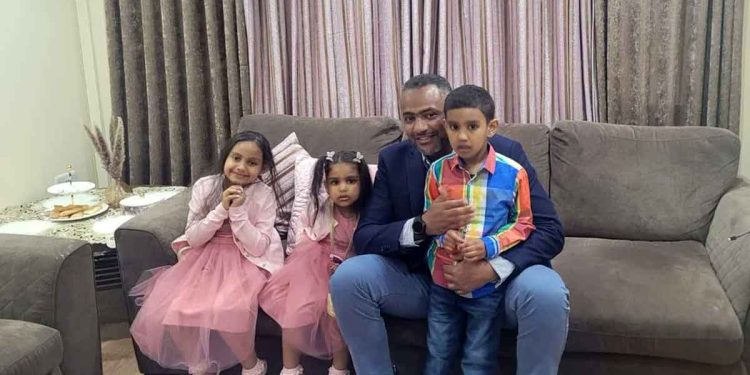A Saudi court has sentenced 41-year-old Sudanese-British national Ahmed Ali Al-Doush to ten years in prison, following nearly eight months of detention without a warrant or formal charges during the early stages of his case.
Al-Doush, an economic analyst employed by an international financial institution, was arrested on 30 August 2024 at Riyadh Airport while attempting to leave the country after a brief family visit. He was suddenly taken from the passport control area without explanation. His wife and children were forced to continue their journey without him, left in a state of shock and uncertainty that lasted for weeks.
Following his arrest, Saudi authorities denied knowledge of his whereabouts, effectively rendering him a victim of enforced disappearance under international law—an egregious violation that strips a detainee of legal protection and severs all ties to the outside world.
More than two months later, it was revealed that Al-Doush was being held at an interrogation facility in Riyadh, where he was reportedly subjected to harsh and degrading conditions, including being held in overcrowded cells and denied medical treatment despite known health issues.
Throughout his detention, Al-Doush faced a series of interrogation sessions, focusing primarily on an old tweet he had posted regarding the situation in Sudan. He was also questioned over alleged links to the son of a Saudi dissident living abroad—a connection that was never substantiated. His legal team views the arrest as retaliatory in nature, especially in the absence of any publicly disclosed legal justification for his prolonged detention.
He was also subjected to prolonged solitary confinement, and was denied access to legal counsel during the first several months of detention—a clear violation of his right to legal representation, one of the fundamental principles of a fair trial under international law. His rare phone calls with family were heavily monitored and severely restricted, preventing any meaningful personal connection.
His wife, who was pregnant at the time of his arrest, gave birth to their fourth child in his absence. He has yet to meet or even speak to his newborn, compounding the psychological trauma faced by the entire family. They still remain in the dark about the full details of the charges and the evidence used to convict him.
The sentence has deeply shocked his family and legal team, raising serious questions about the Saudi judiciary’s adherence to international standards of criminal justice. The lack of transparency, closed proceedings, and systematic denial of fundamental legal rights throughout the investigation and trial process have only reinforced fears that the case failed to meet even the minimum requirements of a fair trial.
Saudi Court Sentences Sudanese-British Citizen Ahmed Al-Doush to 10 Years in Prison
Related Posts
Latest
Copyright ©2020, AOHR UK All Rights Reserved.


























